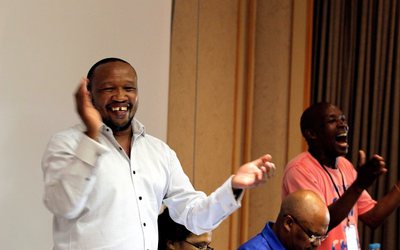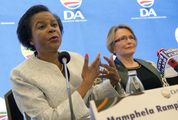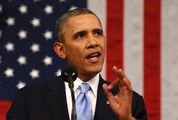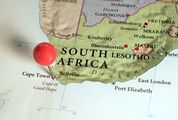THE most interesting political event in this election season might turn out to be one that won’t affect the vote much this time — the National Union of Metalworkers of South Africa’s (Numsa’s) decision to distance itself from the African National Congress (ANC) and the Congress of South African Trade Unions (Cosatu).
Despite the hype when Numsa announced last month that it would not pay dues to Cosatu or campaign for the ANC, it has become clear that its decision will not have a marked effect on this election. The union is keeping its political options open and, for now, it will not actively campaign against the ANC — it will simply not work for it and will leave it to members to decide who to support. It has also begun considering its political future: its options range from staying in the tripartite alliance and campaigning for change, to forming a new party. It will not decide in time for this election.
So the effect on this year’s ballot will be to deprive the ANC of the active support of Cosatu’s biggest union. That may cost it votes. But, as Numsa will not be using its organisational weight to campaign against the governing party, the damage will be limited.
In the longer term, the effect could be huge. If Numsa does decide to form or support a new party, this could be far more of a political game-changer than anything that is likely to happen in this campaign. The only sure thing about this election is that it will not be as dramatic as we are being told.
Yes, the ANC enters the campaign in the worst shape it has been in since 1994. Widespread disenchantment among its supporters is reflected in its own documents. It also has organisational problems. Cosatu is now also divided on whether to support it.
The ANC Youth League has been a major factor in getting out the ANC vote in previous elections. But the ANC’s failure to restore democracy to the league means it is in no condition to help this time. ANC list contests threaten to become another damaging scrabble for positions: losers, perhaps emboldened by the relative success of former ANC independents in Tlokwe, may look for other political vehicles. Given these realities, it is sure to lose ground.
But no one really believes it will come anywhere close to losing the election. Yes, polls by market researchers say it may get only 53%. But these polls have underestimated the ANC vote time and again. The DA’s target is to win Gauteng, not the country. It is too early to make predictions because many ANC voters will decide only later whether to support it. But it is still more likely than not to win more than 60%.
Some will nevertheless see this as the beginning of the end for the ANC, a continuation of a slide that can end only in its defeat. But, while many voters may be angry with it, they do not feel they have anywhere else to go — the loudest message of this election may yet be that, despite its travails, the ANC’s ability to assemble a majority remains strong.
The ANC tradition remains the political home of most voters, however unhappy they may be with its present leadership. Until an opposition party emerges that can credibly claim that it is continuing that tradition, the ANC may be assured of a majority. Which is why another split in the ANC camp is more likely to threaten its majority than gains for today’s opposition.
This is where Numsa comes in. If it does form a new party, it seems likely that metal workers will not be its only supporters: there are workers in other industries who also feel alienated from the ANC. It might also attract support from social movements and citizens’ organisations that want a left alternative to the ANC. Since it comes from within the ANC tradition, most voters can support it without betraying their political loyalties. (The ANC might question its loyalty to the tradition by pointing out that some in Numsa have long wanted a workers’ party but that may not dissuade voters.)
A left party would not win an election, but it could change the electoral landscape.
It is often claimed that the Congress of the People’s (COPE’s) breakaway from the ANC showed that battling it for the traditional ANC vote is futile.
But COPE was formed only months before an election, it made major strategic errors and still won almost 8%. If a Numsa-inspired party was formed well before the 2019 election and did not make major errors, it might win 10%-12%. If the ANC does drop to just more than 60% and loses a bit more next time, that could deprive it of a majority.
A breakaway may not depend on what Numsa does — the ANC may not keep those who lost at Mangaung after the election because politicians who worked for the winners will want their jobs.
But the key point is that ANC splits will matter more than opposition gains. And so what Numsa chooses to do in the months ahead could change the future.
• Friedman is director of the Centre for the Study of Democracy.

CRISIS: Numsa general secretary Irvin Jim said on Sunday that the union was involved in a real-time revolution and finding an alternative to the alliance would not be easy. Picture: THULANI MBELE
THE most interesting political event in this election season might turn out to be one that won’t affect the vote much this time — the National Union of Metalworkers of South Africa’s (Numsa’s) decision to distance itself from the African National Congress (ANC) and the Congress of South African Trade Unions (Cosatu).
Despite the hype when Numsa announced last month that it would not pay dues to Cosatu or campaign for the ANC, it has become clear that its decision will not have a marked effect on this election. The union is keeping its political options open and, for now, it will not actively campaign against the ANC — it will simply not work for it and will leave it to members to decide who to support. It has also begun considering its political future: its options range from staying in the tripartite alliance and campaigning for change, to forming a new party. It will not decide in time for this election.
So the effect on this year’s ballot will be to deprive the ANC of the active support of Cosatu’s biggest union. That may cost it votes. But, as Numsa will not be using its organisational weight to campaign against the governing party, the damage will be limited.
In the longer term, the effect could be huge. If Numsa does decide to form or support a new party, this could be far more of a political game-changer than anything that is likely to happen in this campaign. The only sure thing about this election is that it will not be as dramatic as we are being told.
Yes, the ANC enters the campaign in the worst shape it has been in since 1994. Widespread disenchantment among its supporters is reflected in its own documents. It also has organisational problems. Cosatu is now also divided on whether to support it.
The ANC Youth League has been a major factor in getting out the ANC vote in previous elections. But the ANC’s failure to restore democracy to the league means it is in no condition to help this time. ANC list contests threaten to become another damaging scrabble for positions: losers, perhaps emboldened by the relative success of former ANC independents in Tlokwe, may look for other political vehicles. Given these realities, it is sure to lose ground.
But no one really believes it will come anywhere close to losing the election. Yes, polls by market researchers say it may get only 53%. But these polls have underestimated the ANC vote time and again. The DA’s target is to win Gauteng, not the country. It is too early to make predictions because many ANC voters will decide only later whether to support it. But it is still more likely than not to win more than 60%.
Some will nevertheless see this as the beginning of the end for the ANC, a continuation of a slide that can end only in its defeat. But, while many voters may be angry with it, they do not feel they have anywhere else to go — the loudest message of this election may yet be that, despite its travails, the ANC’s ability to assemble a majority remains strong.
The ANC tradition remains the political home of most voters, however unhappy they may be with its present leadership. Until an opposition party emerges that can credibly claim that it is continuing that tradition, the ANC may be assured of a majority. Which is why another split in the ANC camp is more likely to threaten its majority than gains for today’s opposition.
This is where Numsa comes in. If it does form a new party, it seems likely that metal workers will not be its only supporters: there are workers in other industries who also feel alienated from the ANC. It might also attract support from social movements and citizens’ organisations that want a left alternative to the ANC. Since it comes from within the ANC tradition, most voters can support it without betraying their political loyalties. (The ANC might question its loyalty to the tradition by pointing out that some in Numsa have long wanted a workers’ party but that may not dissuade voters.)
A left party would not win an election, but it could change the electoral landscape.
It is often claimed that the Congress of the People’s (COPE’s) breakaway from the ANC showed that battling it for the traditional ANC vote is futile.
But COPE was formed only months before an election, it made major strategic errors and still won almost 8%. If a Numsa-inspired party was formed well before the 2019 election and did not make major errors, it might win 10%-12%. If the ANC does drop to just more than 60% and loses a bit more next time, that could deprive it of a majority.
A breakaway may not depend on what Numsa does — the ANC may not keep those who lost at Mangaung after the election because politicians who worked for the winners will want their jobs.
But the key point is that ANC splits will matter more than opposition gains. And so what Numsa chooses to do in the months ahead could change the future.
• Friedman is director of the Centre for the Study of Democracy.























Post a comment